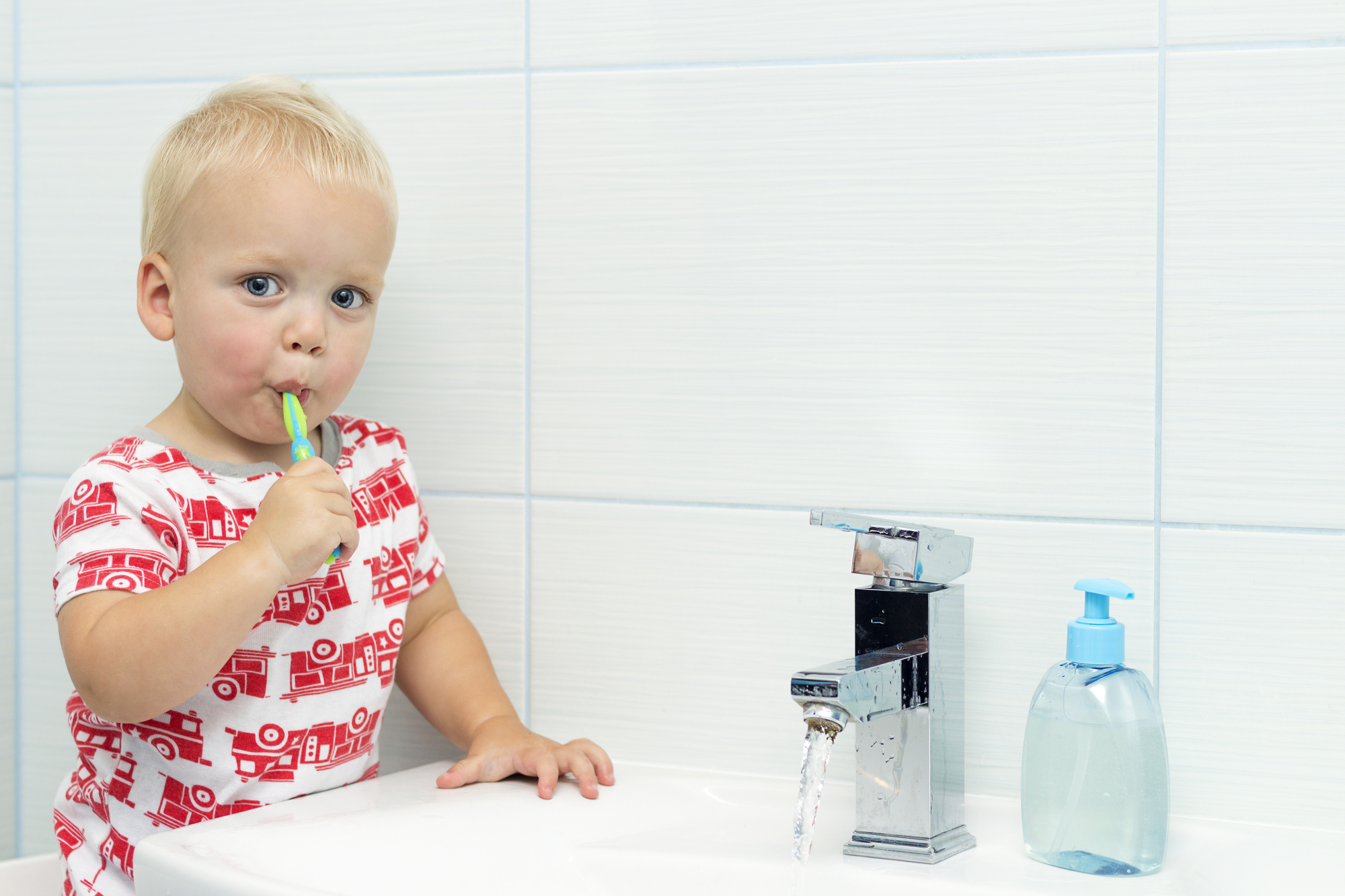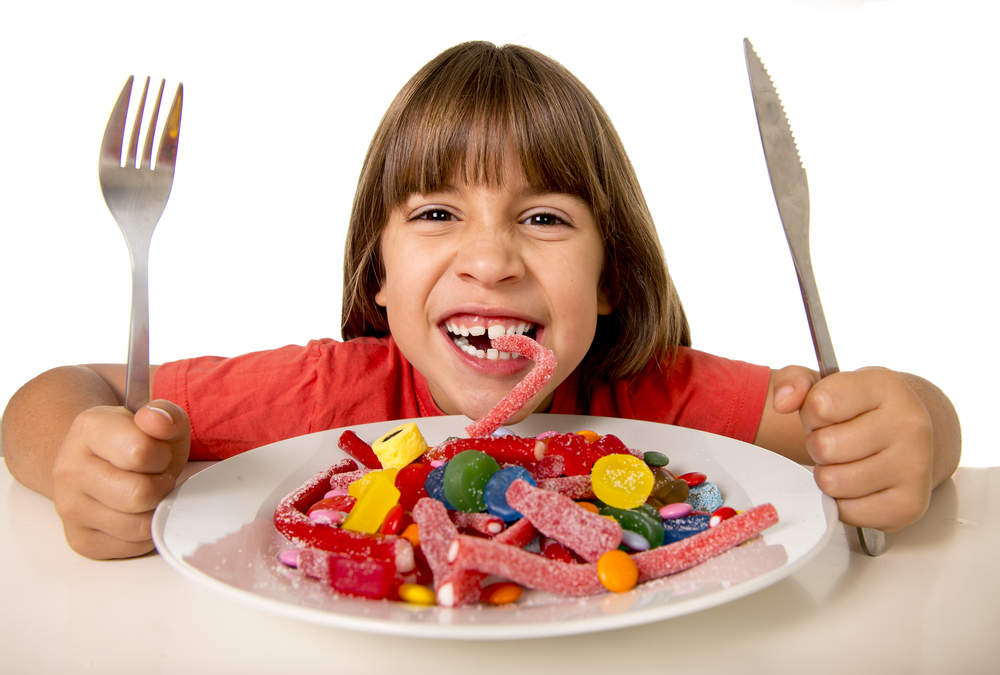So often with new babies, the focus is on breastfeeding, developmental milestones and sleep, and new parents are often in the dark about teeth care for their bubs.
For Dental Health Week (August 1-7), the Australian Dental Association (ADA) is reminding Australian parents of the oral hygiene basics for children: brush twice a day, floss daily, eat a diet low in sugar and see your dentist regularly.
This may seem obvious, but the stats surrounding children’s’ oral health are alarming: 34% kids aged 5-6 have had tooth decay in their primary teeth, 70% kids aged 9-13 consume too much sugar, and 27% children aged 5-10 have untreated tooth decay.
The lack of infant oral healthcare information may contribute to these stats – so what are the oral healthcare basics for babies and toddlers?
Before babies get their teeth, parents may choose to wipe their baby’s gums with a clean, damp muslin cloth to remove food particles once they start solids. Once the first tooth arrives, start using a soft bristled toothbrush and water to brush with, not toothpaste.
“Toothpaste doesn’t need to be introduced until 18 months, unless otherwise advised by your dentist,” said the ADA’s Oral Health Promoter and dentist Dr Mikaela Chinotti.
“At this age, start using a fluoride containing children’s toothpaste. The fluoride ingredient is important as it helps to strengthen and protect the teeth from tooth decay.
“After brushing, your infant or child should spit out the excess toothpaste, but they don’t need to rinse the mouth with water. Children are likely to swallow more toothpaste by rinsing than by just spitting out.”
For parents finding the whole brushing routine fraught, there are numerous phone apps that have songs to help your little one to brush for the recommended two-minute length of time. Alternatively play a song your child likes for the two-minute period. For babies with only a few teeth however, this two-minute routine isn’t necessary at this stage.
In addition to brushing, flossing should start from when your baby has two teeth that touch together side by side, often around the age of two. Your dentist can show you how to floss inside a little mouth and most recommend flossettes for little mouths.
The issue of night-time drinks is an area of confusion for some parents. When sleeping, the body decreases saliva production so the milk from a bedtime bottle of formula milk may be left on the teeth without the saliva flow to wash it away. If this occurs repeatedly, it can result in tooth decay.
So if you give your baby a bottle at bedtime, put cooled, boiled water in the bottle if they’re six months or younger. After that age, give them water straight from the tap in their bottle as a bed-time drink and never juice, as the acid in the fruit may also lead to tooth decay.
Your baby’s first dental visit should ideally be when their first tooth arrives or by age one, whichever comes first. And it’s best that this first visit is not due to tooth pain, as this may cause anxiety at future dental visits.
For the first few appointments some parents find putting their little one on their lap as the most comfortable and calming solution for everyone.
At these early dental appointments, the dentist will investigate your child’s mouth to examine the teeth and advise the parent or carer on oral hygiene techniques, and provide information on a tooth-friendly diet.
For more information on this and other oral health topics, head to the ADA’s dedicated website: teeth.org,au. There are pro-tip videos on caring for your infant’s oral health and on teething babies.
Dr Mikaela Chinotti: ADA’s Oral Health Promoter
Dr Chinotti works as the Australian Dental Association Oral Health Promoter, as well as part-time as a general dentist is Sutherland Shire, Sydney. She has completed a Bachelor of Dental Surgery and Masters of Public Health, both from James Cook University. Dr Chinotti is passionate about ensuring all Australians have access to appropriate knowledge to improve and/or maintain their oral health.









